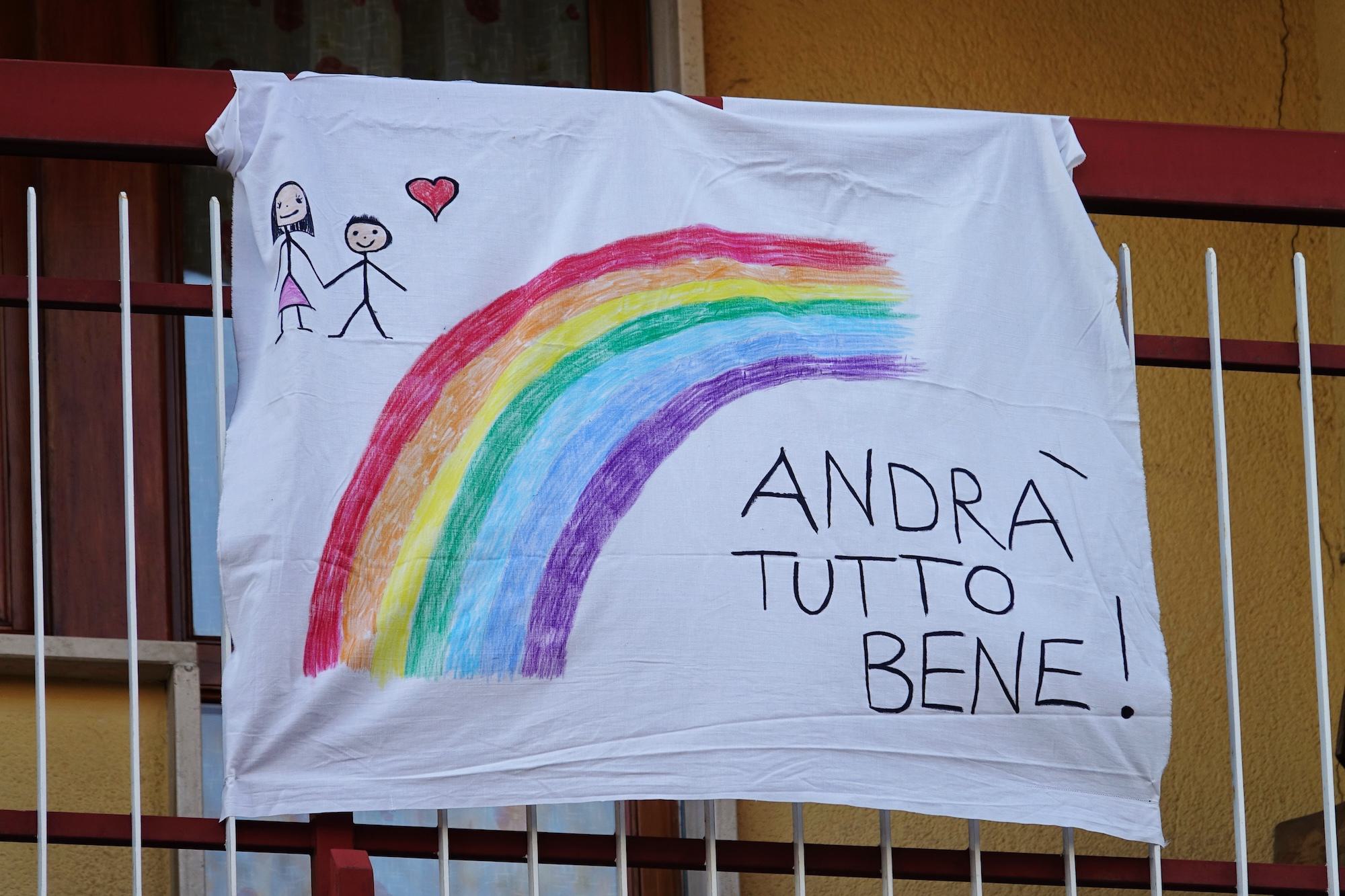Fundraising in a time of crisis: could this be fundraising’s finest hour?
In a letter prompted by an inquiry from Roger Craver of The Agitator (see below) SOFII founder Ken Burnett explains why the unexpected and unwanted opportunity created by the coronavirus outbreak could be a transformative moment for fundraisers.
- Written by
- Ken Burnett
- Added
- March 27, 2020

Could this be fundraising’s equivalent of Italians singing to their neighbours from their balconies?
‘At times of crisis, turn to your donors’. It’s a well-worn truism of our sector and I’ve always found it infallible.
Well, this is a crisis alright and for sure, charities in droves will be turning to their donors bigtime in coming weeks. The coronavirus crisis will hit not-for-profit fundraising very hard and for a long time. Quite possibly some charities won’t survive.
But what will donors make of it? Particularly, in my country, so soon after the confidence-shaking media assault on charities that was triggered by the tragic death of Mrs Olive Cooke. Trust in our sector hasn’t yet recovered from the sustained exposure of inappropriate fundraising practices that surfaced throughout that prolonged attack. Will the unwanted opportunity afforded by the current crisis lead to a carefully considered, mutually beneficial response from charities that will excite, engage and inspires donors to rally round, or will it merely provoke a flood of additional solicitation that donors might or might not support, but will most probably not welcome?

Issued just as the current crisis was gathering momentum, there was something timely in the prophetic warning from Kevin Schulman, above. Of course, what Kevin says has been increasingly evident now, for years. It’s just that we’ve yet to address it, yet to agree on a practical alternative.
Horrific though it is, I’d be surprised if this crisis is not a unique opportunity for charities to show, as they turn to their donors, that we are all, really, genuinely, in this crisis together. We’re in it for the long term, so we have to make the best that we can of it, together, for the collective good. But I suspect there may well be at least three different categories of response from charities that will prevail at this time.
1. The knee-jerk cost-saver - stop communicating now, to save money. No appeals, no investment, no acquisition, no stewardship. Cut everything. Ditch suppliers and consultants. Cancel all communications other than those that cost you nothing.
2. The hard-sell emergency fundraiser. As soon as we can, let’s ask more people more vigorously more often for more money, to bail us out of this unexpected catastrophe. Then, we’ll ask again. And send a reminder.
3. The focus on the supporter experience. This is the ‘Let’s give before we get, sharing with our friends’ approach. Here, it’s the supporter’s experience that matters most. Tell us how you’ve been affected. Perhaps, we could offer regular donors now unemployed a holiday from their monthly regular payment? Show them that we’re here for them at their time of potential need. If we do, they won’t forget us.

It will be to our eternal credit if we can get this right. When two bombs went off at the Boston Marathon in 2013 killing and injuring many bystanders, the attack might readily have been seen by many of the organisations involved as an opportunity for fundraising. Immediately after the tragedy a friend received a letter from a favourite cause involved in the race. But they weren’t asking for money. They were asking if he was OK. The not-for-profit knew he lived in the Boston area, so they were writing just to check that he and his family were alright. Seven years later, my friend choked with emotion as he told me this. He also said, ‘I’ll never forget how they made me feel’.
Many trustee boards and senior management teams worried about falling incomes will want to adopt the first of these responses. Many fundraisers will be looking to find opportunities for increased asking. But I believe that it’s those that temper the first two responses with a genuine, tailor-made version of the third response who will prosper in this challenging, difficult time and through the long term. Such responses may in the process help us to rebuild public confidence in our sector and might even contribute to a change in culture, so in future we won’t be seen as those folks who always keep their heads firmly down during a crisis, or those hucksters who follow hard on its heels with a begging bowl. Instead, there’s an opportunity to be seen to be reassuring supporters of all shapes and sizes that they really do matter, that together we can and will make a difference, that our sector cares for and has faith in its donors and that, by us giving now to support them, those same donors will surely respond when they can, to the best of their abilities, and so will sustain our organisations in the vital work that we do.
My friend and colleague David Carrington reminded me recently that in the darkest days of the coronavirus outbreak in Italy, quarantined people at risk themselves came out upon their balconies to sing to, sustain, support and delight their fellows, all equally caught up in that common tragedy.
We now need something of that generous spirit, in our fundraising.

This letter was first published on 27th March 2020 by Roger Craver on The Agitator website, under the heading On serenading donors from the fundraising balcony. Here Roger explains how it came about.
‘Each day I check in with a few fundraising pals around the globe to see how they’re doing, and what they’re doing. Had a wonderful chat the other afternoon with Ken Burnett, author of the classic Relationship Fundraising: A Donor Based Approach to the Business of Raising Money.
‘Ken’s seen a lot, done a lot and been through a lot, so I asked him how he’d advise nonprofits operating in this pandemic. What he told me was both uplifting and down-to-earth. In a nutshell he thinks fundraisers should be asking, and asking boldly.
‘BUT…Ken also thinks we need to ask properly at a time like this. Properly in this crisis means first ensuring the folks we are asking are OK, that they’re safe and not worried, or are affected by something the charity might help them with.
‘Here, and above, is Ken’s advice to all of us.’
Roger
This article is part of our series on fundraising in a time of crisis, a response to the covid-19 outbreak. For the full list of contents in the series, click here.


















